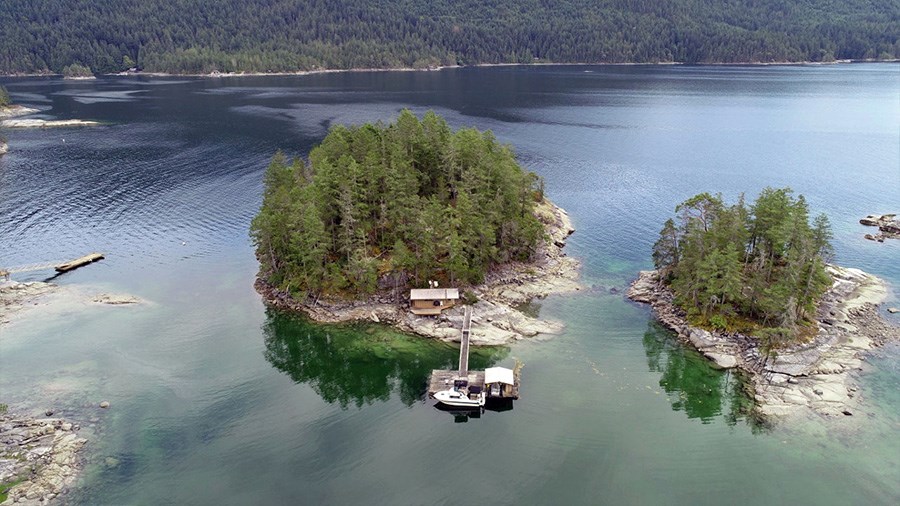Over the past year we've been sharing information on recreational properties listed for sale in B.C., from private islands to wineries to bison ranches to A-frame cabins and beyond. Below is a guide on the things to to consider when you're thinking about investing in this sort of property, written by real estate agent Cole Westersund, who is the listing agent on a few of the properties we've shared with you.
Considering purchasing recreational property in British Columbia? If so, you certainly are not alone. A mix of buyers both locally and abroad have set their sights on owning property of all sorts all throughout this beautiful province, and we don’t blame you! British Columbia is an incredibly diverse region that offers infinite recreational opportunities to anyone who loves the outdoors or is just looking for some peace and quiet and solitude.
Purchasing recreational property can seem like a daunting exercise for even savvy real estate investors, however, it doesn’t have to be! Knowing what to look for (and doing your research) can simplify the process and avoid pitfalls that could turn your dream property into a nightmare. The following is a list of important factors to take into consideration when beginning your search. Given BC’s diverse topography and climate, we always recommend buyers find their own real estate professional to assist them through the buying process.
Take some time to reflect on why you are even considering buying a recreational property in the first place. What are you after with this purchase and what are your goals? Do you want to be able to ski more? Fish more? Hunt on your own land? Perhaps you want to raise animals, or get your kids more in tune with nature? Maybe you just want to be left alone! Whatever your reason, walking into the process with a clear objective in mind will help you narrow in on the property that is right for you.
Once you’ve determined what type of recreational property meets your needs, a prudent next step would be to speak with a mortgage professional. Second homes and recreational properties typically require larger down payments. 20-30% or more is not uncommon, and that number is often even higher for bare land, or income-producing properties such as resorts and guest ranches. Before dedicating too much of your time and resources to the search, do some homework to see if this is the right time to purchase the property you are chasing. Having a clear understanding of your financial limitations will also help during the offer/sale process.
Now is the fun part! With your desired location and budget in mind, you can begin the exciting hunt for your dream recreational property. For this step, we always recommend engaging a real estate professional. Someone who can help track down listings that match your criteria, and coordinate showings with the listing agent. If you have a trusted REALTOR®️, they will help get the ball rolling and, if necessary, refer you to a local REALTOR®️ with more expertise in that area.
Once you’ve narrowed in on a property that checks your boxes, you can begin your due diligence. Remember, the more homework that gets done, the more you get to enjoy your property on day one. Be sure to ask your REALTOR®️ for advice on what to look for, but a few key items to note include:
1. Services
Undoubtedly, one of the most important aspects of a recreational property will be the services does, or does not, have available. Septic, water and power are three primary amenities that most buyers require in a rural getaway. If the property you love doesn’t have those services, then look into costs of adding them, or possibly for alternative solutions to make sure you can enjoy your space as you had originally intended.
2. Access
People who are used to swept and snow-cleared streets in the city can often overlook the type or quality of access recreational property has available. This is especially important where there are diverse climates and weather systems affecting each region. Properties we sell at LandQuest exist along Forestry Services roads, both active and non-active. They are typically not well maintained and can pose issues to those who aren’t prepared for tough road conditions. Having an idea as to how you can get to your property through all seasons is key to ensuring unobstructed use and enjoyment.
3. Zoning
If you are buying a fixer upper or hoping to tack on a few more structures to house more of your family and friends then you need to review and understand the property's zoning bylaws. Check and double check to make sure your plans for the future align with what is allowed in that area.
4. Local Amenities
Technology has made this incredibly easy, but it is still very important step to ensure a comfortable and hassle free holiday (depending on what you are looking for). Do a Google search of the area and closest town, as well as what amenities it has and how long it will take to get there. This will be very helpful in the event of an emergency, and ensure you have a plan in place for anything that the wilds of B.C. throws at you.
Be sure to take your time in this endeavour, and ask as many questions as you can. It is your right to know what you need to in order to feel comfortable with this type of purchase, so do your homework!
Cole Westersund is an agent with



